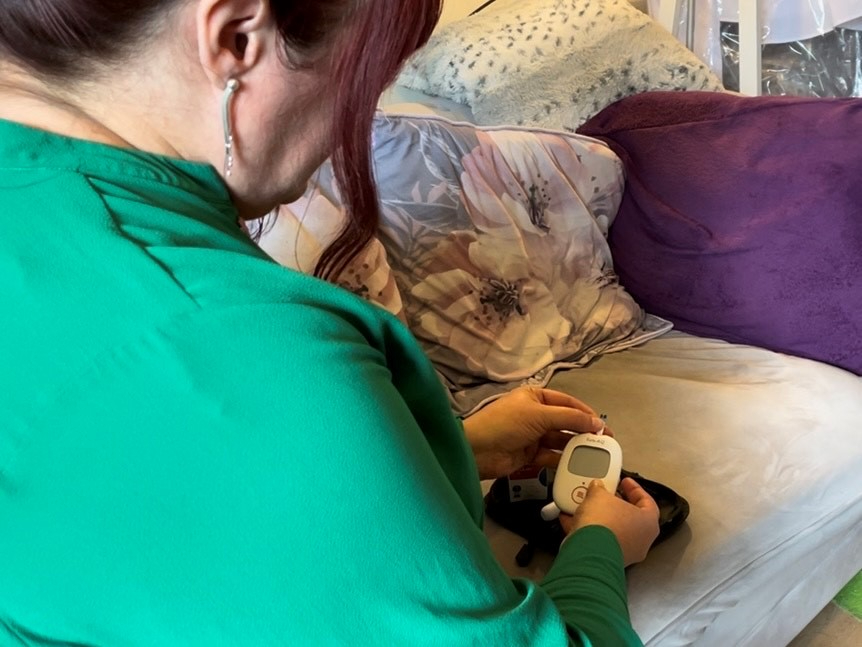Hampshire and the Isle of Wight is fighting back against the threats posed to patient health by type 2 diabetes and this week (22-28 May 2023) is Type 2 Diabetes Prevention Week.
Type 2 Diabetes Prevention Week is a joint campaign from NHS England and Diabetes UK.
The numbers of people being referred to the NHS Diabetes Prevention Programme (NDPP) in Hampshire and the Isle of Wight is at its highest levels for four years, since before the COVID-19 pandemic.
For the six-month period from August 2022 to February 2023, 5,805 patients agreed to be referred by GPs to the programme – exceeding the national targets which the Integrated Care System (ICS) for Hampshire and the Isle of Wight had been set by NHS England.
That compares to 3,905 patients for the same period for 2021/22; 2,340 in 2020/21 and 4,190 in 2019/20.
Andover GP Dr Paul O’Halloran, Chair of the Diabetes Board for the Hampshire and Isle of Wight Integrated Care System, said: “Patients at risk of developing Type 2 diabetes who attend the programme receive support with understanding their risks, and advice around healthier eating, managing weight and increasing physical activity.
“The course consists of 13 sessions over nine months delivered by trained health and wellbeing coaches. It is free to patients.
“Patients are offered a group-based face-to-face session in local venues or a digital app/online service along with group-based tailored remote service for patients with previous gestational diabetes mellitus, hearing, or visual impairment, or from Bangladeshi or Pakistani backgrounds.
“A lot of the success of the programme depends on how engaged patients are when they are referred to the programme.
“Combined lifestyle interventions – including diet, physical activity and sustained weight loss –is extremely effective in reducing the risk of type 2 diabetes. That is why we need to ensure that all who can benefit from the programme know of it and can access it.”
Someone completing the programme reduces their chances of developing type 2 diabetes by more than a third (37%), according to University of Manchester research.
Claudine Weeks, Hampshire resident was diagnosed with Type 2 Diabetes in 2019, she said: “When I turned 40, I was invited to a free health check. The health check gave me a shock diagnosis of high blood pressure, which they discovered was spiking at night, putting me at high risk of having a stroke in my sleep, as well as high cholesterol and Type 2 Diabetes.
“I was immediately given medication for all three conditions and told the first two were most likely due to having had undiagnosed and uncontrolled diabetes. I lost some weight straight away and attended a diabetes information day which was really useful.
“Roll on to 2023, and my cholesterol is normal, my blood pressure is under control and my last annual check-up saw my blood sugar levels are now at a pre-diabetic level, meaning I have been able to halve my diabetes medication.
“The amount of information, advice and support I’ve had throughout my diabetes journey, from the NHS, has been invaluable and has enabled me to change my eating habits, understanding that – despite what everyone seems to think – it’s not about eating too much sugar!”
“If I’d had all this information beforehand, I might have been able to avoid diabetes, so I’m really pleased the prevention programme is having such a great success. It’s a very serious condition which can have no symptoms, and is tricky to then manage and live with, so if you can prevent yourself from getting it, and are offered support on an NHS prevention programme through your GP, please do take part – it’s really worth it. “

Know your Risk
Being diagnosed with type 2 diabetes can have a devastating impact on people and their families.
It is a leading cause of preventable sight loss in people of working age and is a major contributor to kidney failure, heart attack, limb amputations, stroke and many of the common types of cancer.
You can prevent type 2 diabetes by:
- eating a healthy, balanced diet,
- maintaining a healthy weight and
- keeping physically active.
You can find out your risk of type 2 diabetes by using the Diabetes UK Know Your Risk Score at riskscore.diabetes.org.uk or by searching ‘Know Your Risk’.
For more information about the diabetes programme and to see if you’re eligible for the prevention programme , visit Healthier You | Diabetes Prevention Programme (preventing-diabetes.co.uk) or NHS England » NHS Diabetes Prevention Programme (NHS DPP)